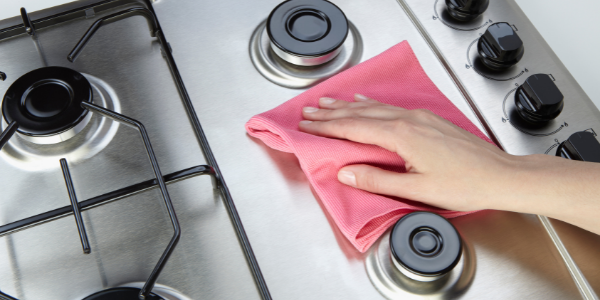How Long Do Propane Appliances Last?
When choosing appliances for their homes or businesses, many people consider propane-powered options due to their efficiency and environmental benefits. Understanding the lifespan of these appliances is essential for making informed purchasing decisions and planning for long-term costs and replacements. Average Lifespan of Propane Appliances A wide variety of household and commercial appliances can be… Continue reading How Long Do Propane Appliances Last?
When choosing appliances for their homes or businesses, many people consider propane-powered options due to their efficiency and environmental benefits. Understanding the lifespan of these appliances is essential for making informed purchasing decisions and planning for long-term costs and replacements.
Average Lifespan of Propane Appliances
A wide variety of household and commercial appliances can be powered by propane, including furnaces, water heaters, stoves, and dryers. These options often have longer lifespans than other appliances, which adds to their long term cost-effectiveness and reliability.
On average, a propane furnace can last between 15 to 20 years, slightly longer than many electric models due to its clean-burning properties, which result in less corrosive damage over time.
Propane water heaters are known for their longevity, also often outlasting their electric counterparts. A well-maintained propane water heater can serve a home or business for about 10 to 15 years. In contrast, tankless water heaters, which can also be propane-powered, offer a longer lifespan of up to 20 years due to fewer demands on the tank structure.
Propane stoves and ranges offer considerable durability, typically lasting 15 to 20 years. The longevity of propane stoves is comparable to that of natural gas stoves but tends to outperform electric stoves, which have more components that can malfunction.
Factors Influencing Lifespan
The lifespan of propane appliances can be significantly affected by several factors:
Maintenance
Regular maintenance is crucial for propane appliances. Annual inspections and cleaning of a propane furnace, for example, can prevent the buildup of soot and corrosion, thereby extending its useful life.
Usage
The more frequently an appliance is used, the quicker it may require replacement. For example, a propane stove in a busy restaurant kitchen will face more wear and tear than one in a seldom-used vacation home kitchen.
Installation
Proper installation by qualified professionals ensures that appliances operate efficiently and are less likely to suffer from operational stresses that could shorten their lifespan.
Advantages of Propane Appliances
Beyond longevity, propane appliances offer several other benefits:
Energy Efficiency
Propane appliances are generally more energy-efficient than their electric counterparts, providing the same amount of energy while using less fuel.
Cost-Effectiveness
Although the initial investment might be higher, the operating costs of propane appliances are often lower due to their efficiency and the generally lower cost of propane compared to electricity.
Environmental Impact
Propane burns cleaner than gasoline and diesel, and when used as a fuel for appliances, it produces fewer greenhouse gases than many electricity sources, especially those derived from coal.
Impact on Propane Businesses
For businesses in the propane industry, the durability and efficiency of propane appliances represent key selling points. By emphasizing the potential long-term savings and environmental benefits, propane businesses can attract customers interested in sustainable and cost-effective solutions for their energy needs. Additionally, offering maintenance services for propane appliances can help these businesses build long-term customer relationships and steady revenue streams.

